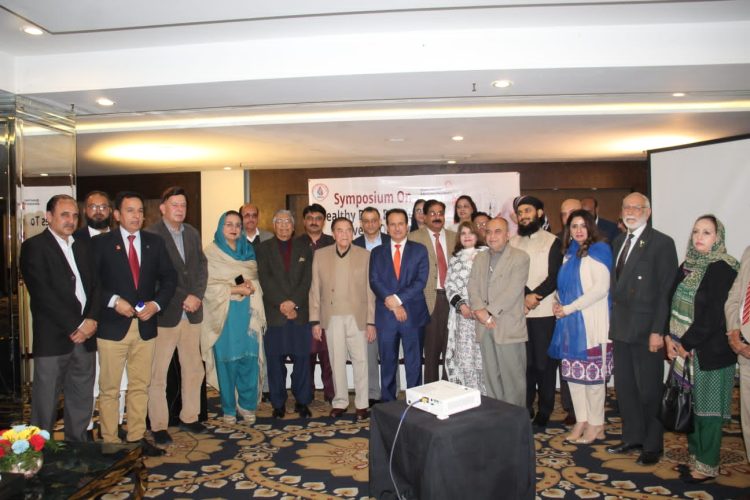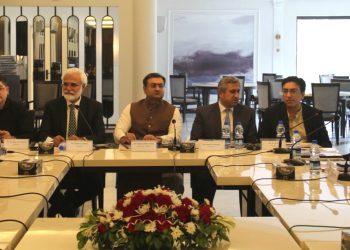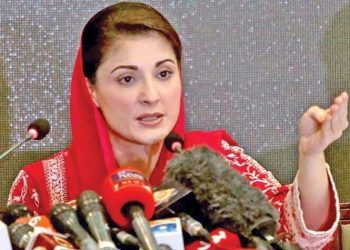Dateline Report
ISLAMABAD: The Pakistan National Heart Association (PANAH) convened a symposium titled “Healthy Diet Policies to Prevent Obesity” at a local hotel on Monday, marking World Obesity Day. The event brought together distinguished experts, health professionals, policymakers, and media to address the alarming rise of overweight, obesity, and diet-related non-communicable diseases (NCDs) in Pakistan.
Key findings presented at the symposium revealed that more than 40% of the Pakistani population is either obese or overweight, with concerning increases observed among children under 5 and women of reproductive age. Sugary drinks and ultra-processed products high in sugar, salt, or trans-fats were identified as major contributors to the obesity epidemic and related NCDs.
Dr. Nadeem Jan, Federal Minister of Health, reaffirmed the government’s commitment to tackling the obesity crisis and NCDs. He announced recent measures taken by the Ministry of National Health Services, Regulations, and Coordination, including the ban on sugary drinks within the health ministry and advisories issued to other ministries to follow suit.
Gen. (R) General Ashraf Khan underscored the importance of addressing modifiable risk factors associated with NCDs, emphasizing the need for immediate policy interventions. He advocated for higher taxes on ultra-processed foods to curb consumption and reduce the burden of obesity and related diseases.
Mr. Munawar Hussain advocated for comprehensive policies aimed at reducing the consumption of ultra-processed products, including higher taxes on sugary drinks and other unhealthy foods. He highlighted the potential benefits of such measures, including revenue generation for the government and improved public health outcomes.
Dr. Shakeel Ahmed Mirza emphasized the detrimental effects of sugary drinks and ultra-processed foods on metabolism and overall health. He stressed the urgency of adopting WHO-recommended limits on sugar, salt, and trans-fats in daily diets to mitigate the obesity epidemic and its associated health risks.
Sanaullah Ghumman shared insights into PANAH’s campaign to raise awareness and advocate for effective policies to reduce the consumption of ultra-processed foods. He expressed gratitude to the health minister for his support in banning sugary drinks within federal government ministries and departments.
The symposium concluded with a call to action for the Pakistani government to implement evidence-based policies aimed at promoting healthy diets, reducing obesity, and preventing NCDs. Participants urged collective efforts from all stakeholders to address this pressing public health challenge.



















